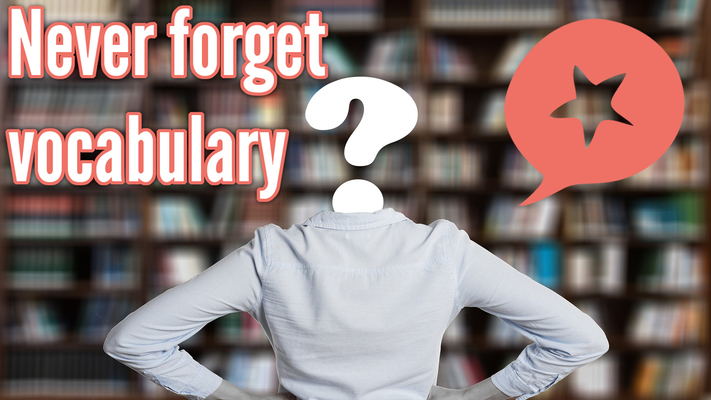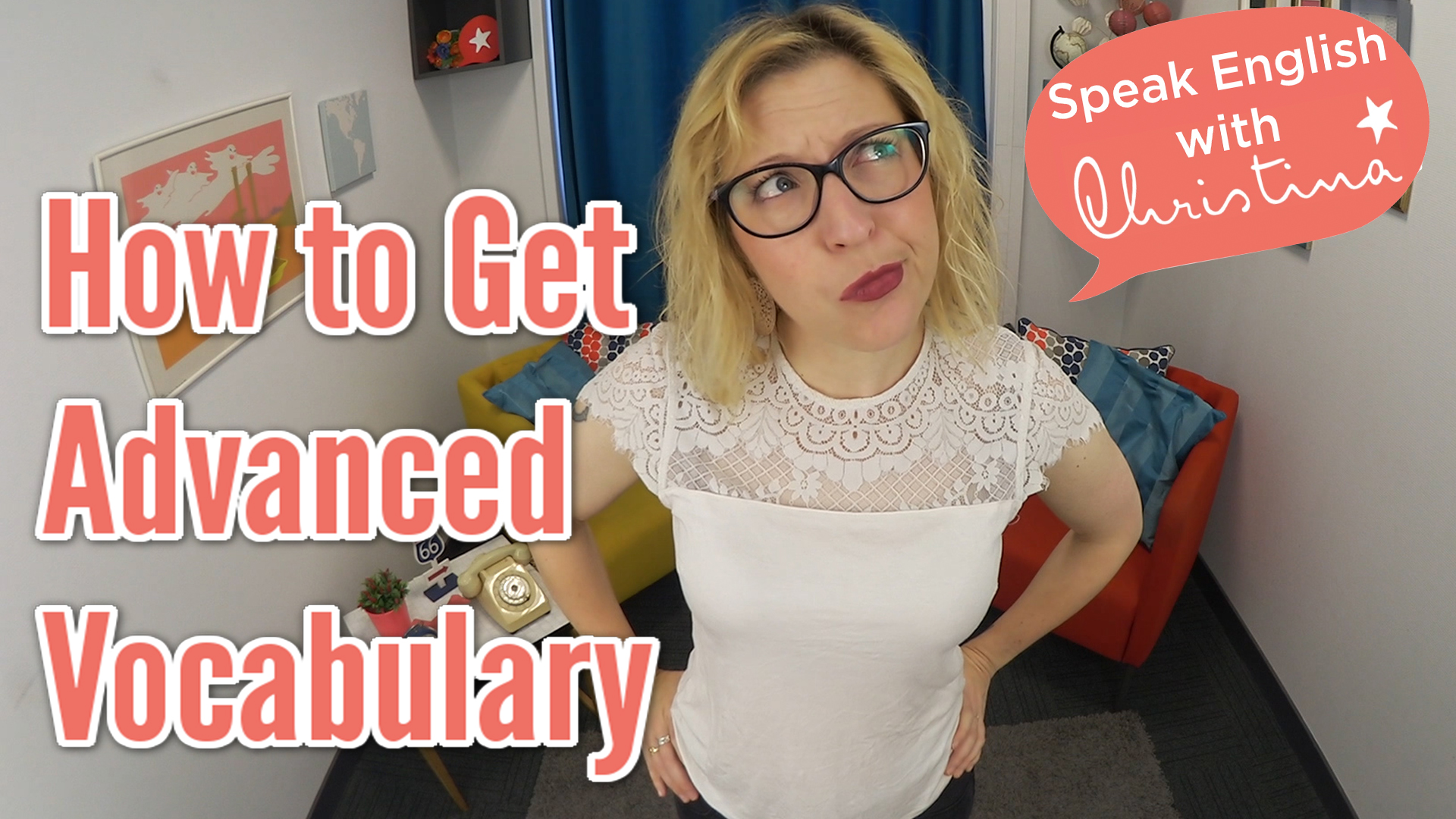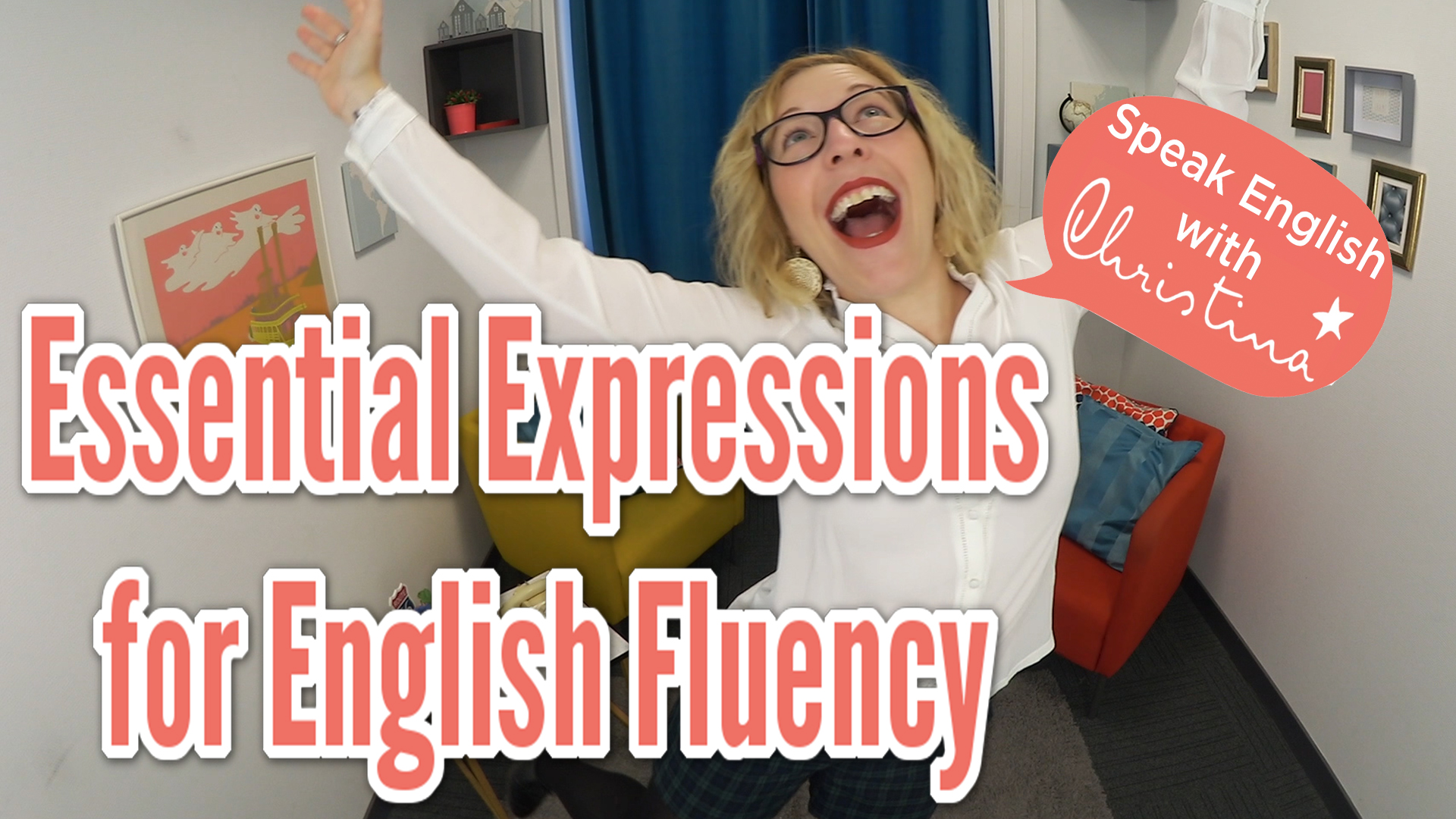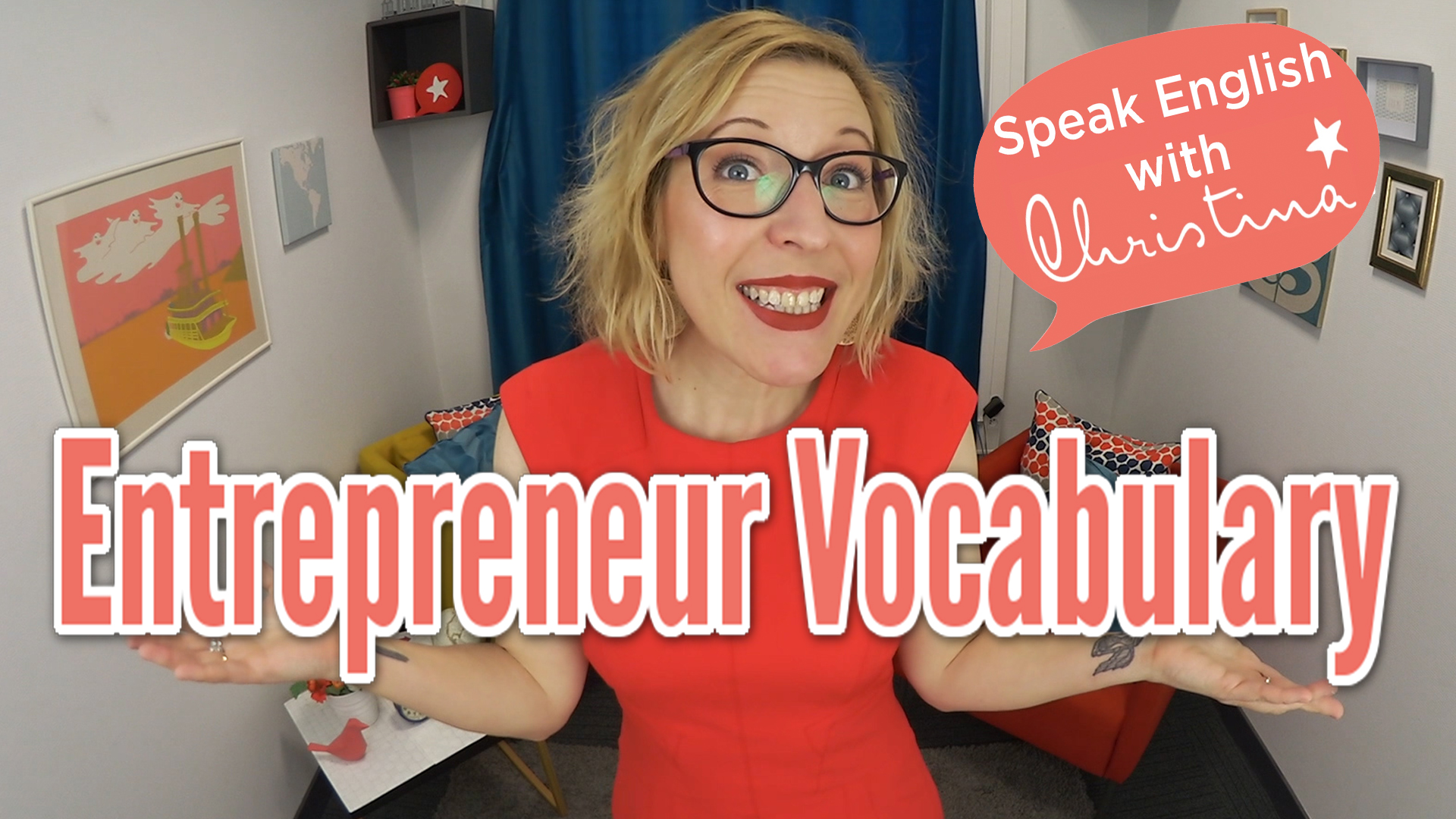
Remember all the vocabulary you learn!
When you’re learning English, you can spend a full evening on a long list of vocabulary… and the next week, you’ve forgotten everything.
Let me show how to start remembering the words instead.
Index:
1. Remember vocabulary: The back-of-the-brain problem
2. Remember vocabulary: Connect the words, and connect with the words
3. Remember vocabulary: Your own connection
4. Remember vocabulary: Action! Use the words
1. Remember vocabulary: The back-of-the-brain problem
Why is it difficult to learn new words in a new language? It’s because you’re working against your own brain.
If your brain thinks that it’s useless to learn all of this, it will not help you remember.
All the words that you’re learning (and spending time studying) will be kept in the back-of-the-brain, for a short time only.
For a few minutes (or a few days), you can remember them from that short-term memory… But after a few weeks (or a few months), when you need these words, you will realize you forgot everything!
It’s like those things you store in the back of your closet. You think “Oh, of course I’ll remember that my winter clothes are there!”… And then in February you can’t find where you put your warm coat.
That’s why you need to learn new English vocabulary with a special technique. You need help speaking advanced English. You need to create a connection with the words.
You need active learning. With emotion, intention, and repetition. Like what you’ll find in Faster Fluency Conversation Club. Let’s see what this means concretely.
2. Remember vocabulary: Connect the words and connect with the words
How do you create that connection?
a) Learn words that you will use.
There’s no point in learning a long list of vocabulary about woodworking, for example, if you’ll never use them or hear them!
Pick vocabulary that you’ll need, such as:
- Your job (see also: You & Your Job)
- Your whole industry.
- Entrepreneur vocabulary in English.
- Essential expressions for English fluency.
- Your favorite sport.
- Your favorite TV series in English.
- Something you like to do in your free time.
Think of things you’re interested in, and that you want to be able to talk about.
You can use a table like this (with vegetables as an example.)
Words Ideas, personal tips
Bell pepper Red like a hot pepper, but shaped like a bell. It’s a bell pepper!
Zucchini Sounds like an Italian name… I like to eat grilled zucchini as antipasti!
Cauliflower There’s “flower” in the name, it kind of looks like a big white flower… kind of…
Write down the list of words on the left column, and add your own ideas or memorization tips in the second column.
b) Learn like you’re going to teach these words to someone else.
Get up close and personal (= “create a personal connection”) with these words!
Think of how you would explain these words to someone else.
What definitions do you create?
What examples can you give?
Teaching something is one of the best ways to learn. For example, if you have a conversation partner, you can teach them 3 new words each time you meet!
c) Don’t fall into the trap of mindless revisions.
You need something more than just going through the list and thinking you’ll remember them if you just spend enough time with them.
Like listen and repeat at school… and how well did that work for you? If you’re like most students, probably not very well.
You need active learning, and even better to BE active in your learning!
That’s also why I created Faster Fluency Conversation Club. So you can get new vocabulary naturally, study it, and then practice using specific vocabulary in authentic conversations… 5 times a week!
3. Remember vocabulary: Your own connection
We all have different ways to learn. Explore and find your own favorite technique.
a) Writing
Some people learn better with written words.
If it’s the case for you:
→ Write down the words without their translation.
The 2-column technique we’ve seen before is great for this!
b) By sound
If you memorize better with sounds, you can:
→ look for a podcast that uses these words often. That’s perfect, as you can hear the words in context.
→ record the words on your list, and play that recording while driving or doing the dishes…
→ record yourself using the words in a story, so they’re in context as well. Even better!
c) Visual memory
If you have a more visual memory, if you learn better with pictures, you can use picture cards for the words…
There’s another technique that you can use (and that can work for anyone.) The secret is: → turn the words into pictures in your head! (Turn into = transform into, change)
Create a mental image by visualizing each word as a picture, or an action related to the word.
Even better, do ALL of these! The more senses you engage when you’re learning something, the better you learn it.
The trick is to really take each word and spend time with it, trying to create an particular connection with it, rather than memorizing a long list of words by heart (and forgetting them when you really need them in a conversation).
4. Remember vocabulary: Action! Use the words
The best way to remember vocabulary is by using spaced repetition. It’s to relearn (or think about) vocabulary regularly – each time you do that, it’s easier, and you’ll fix these words in your brain for a longer time.
And the most natural way to do spaced repetition, is by using the vocabulary in real conversation! Like with Faster Fluency Conversation Club.
For example, you can have several different conversations, a few days apart, where you use the same vocabulary.
Now your brain really knows these words are useful.
And you’ll get to connect them emotionally, when you use them in conversation.
That’s a powerful way to remember!
With a conversation club for example, you can set a topic to the conversation. And after a few sessions, you’ll be sure to have the words you need fresh in your head for a long time.
And now, you’re one step closer to feeling more confident speaking English faster and more fluently!
If you want to go further with me, let’s try some Advanced Vocabulary. I made you a short playlist for this, so you can improve your Vocabulary and learn the English you need to express what you want to say.
It’s full of phrasal verbs, idioms from real conversations, expressions you never learned in school, and more. It’s the perfect resource for practicing the techniques you learned in this video.
Click here to keep learning. I’ll see you in the next video!
And if you want to learn more about using new vocabulary with English conversation and how to repeat it naturally so you really learn it, check out the Faster Fluency Conversation Club.
More good stuff...
Click the image to learn more








Ma technique pour retenir le vocabulaire + verbes. J’apprends pas plus de 5 mots + verbes par jour. Je les notes, je les prononce correctement (wordreference), je les associe à une image dans ma tête (pour l’accrocher), ex to boast : vanter, je pense à un beau mec qui se vante, ou to hum: fredonner, je pense à un homme qui fredonne dans un hummer (je sais c un peu fou, mais plus c fou et drole et plus ca marche), je fais une phrase à vois haute avec ce verbe et finallement je les note dans un carnet de poche (ma bible). Quand j’ai 20/30 mots, ces mots deviennent une session de mots. Ensuite j’ai un programme de révision strict. Tous les matins je lis mes 4 dernières sessions (lecture simple) = apprentissage. Tous les soirs, je travaille de façon + approfondie 1/2 sessions au hasard (hors 4 dernières) = révision , du mot français je dois trouver le mot anglais et l’image du mot rattaché à ce dernier, je fais une phrase et hop. Merci Christina pour cette vidéo et ce travail. Je vai utiliser quelques conseils de cette vidéo pour améliorer encore ma technique d’apprentissage.
Wow, Little Scarabee, those are fantastic tips, and they are exactly what helps to remember vocabulary! Especially imagining silly or crazy images! Like you said, the more memorable, the better! Could I ask you to translate your tips for everyone in the community? They are so valuable and I’m sure that everyone would benefit from them! Even a copy-paste from Google translate would be great! Thanks and merci beaucoup !
Hi there,
I would like to say thank you!, it really helps.
You’re welcome, and I’m glad to hear that it helps!
My technique for retaining vocabulary + verbs. I learn no more than 5 words + verbs per day. I write them down, I pronounce them correctly (wordreference), I associate them with an image in my head (to hang it), ex to boast, I think of a handsome guy who brags, or to hum, I think of a man who hums in a hummer (I know it’s a little crazy, but the more crazy and funny and the more it works), I make a sentence in high voice with this verb and finally I write them down in a pocket notebook (my bible) . When I have 20/30 words, these words become a word session. Then I have a strict review program called 2/4/2. Every morning I read my last 2 sessions.
During the day, I revise 4 sessions of vocabularies + verbs at random.
For succeed, expand your vocabulary gradually and often review it.
Every evening, I read my last 2 sessions. Thank you Christina for this video and this work. I’m going to use some tips from this video to further improve my learning technique.
Hello, if you don’t got enough time to expand your vocabulary, this is my tip (for 5 words/day).
First of all, one lesson from the website ELLLO (first you listen, then you try replying quiz, then you look at the trsncript and the new vocabulary). At last you subscribe from yhe website wordrefence heading “word of the day” basic +” and “intermediate”. So you receive each day 2 new words in your mailbox. Take care of yourself. Little scarabe.
Hello, another trick to remind yourself your vocabs. Learn your words by 2. For exemple, see/seed : “I see a seed”. Wander/wonder : “I wonder to wander with a wanderer”. And so on and so forth.
You can also remind your words with crazy pictures. When i learn the word “thorn”, i think about the superhero “THOR is afraid with a thorn”. To gamble, “a gambas gamble”, it’s just crazy but the purpose is here. Take care of yourself.
Little scarabe.